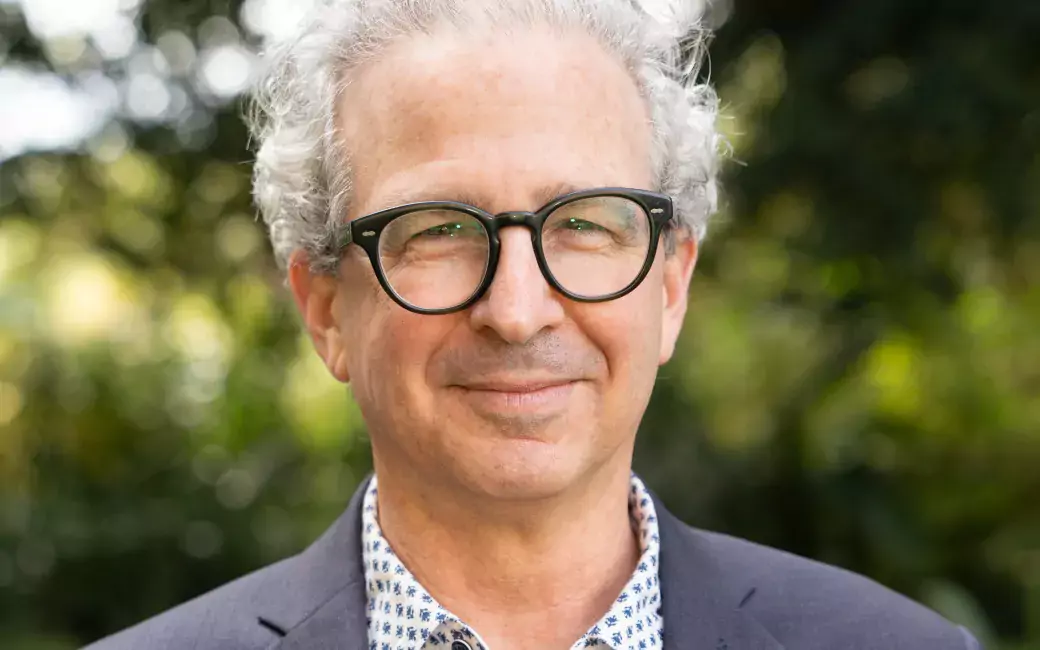Professor David Schlosberg explores the urgent need for resilience and environmental justice in our interconnected, relational world.

Can climate disruptions and converging crises it contributes to be understood as environmental and climate injustice? And if so, what does it mean for democracy? Is there an opportunity in the crisis or are we heading towards more trouble? These are some of the issues that David Schlosberg aims to look into during the Jane and Aatos Erkko Visiting Professorship at The Helsinki Collegium for Advanced Studies in spring 2024.
The turbulence in global environmental politics turbulence mentioned above, arising from climate change, and leading to converging crises disrupting lives worldwide, Schlosberg argues, forms the basis of climate injustice.
But even in turbulent times, communities are organizing themselves showcasing community-based resilience.
"We've seen actions like rescuing animals during fires or people helping each other clean homes and rebuild after flooding. The responses are not only participatory and democratic but also grounded in a relational understanding and knowledge of place."
It would then seem that there are opportunities for improving democratic practices - if we so choose.
Environmental justice also needs to be grounded in the actual governance of climate change.
"My job as a social scientist is to show that change is possible. I like working with civil servants, and the people who are doing the work on the ground directly with communities. They can make change and, for example, bring justice into resilience planning and adaptation planning."
Hailing from Sydney to explore ideal academic setting in Helsinki
Professor Schlosberg began his fellowship at the University of Helsinki in January, with the city covered in snow.
"I'm enjoying a proper winter for the first time in many years, it's wonderful!" Schlosberg says.
Schlosberg has high expectations for Helsinki Collegium for Advanced Studies.
"When I got the invite, one of my colleagues at the University of Sydney, said: "You have to take it. It's the most collegial and inspiring place I've ever been to." You just don't hear that very often!"
First impressions have not been a letdown.
"The Collegium is the ideal of academia: people come from a variety of backgrounds, some of the smartest people on the planet, and engage each other around core ideas. The work being done here is amazing, and the conversations have incredible potential for cross-fertilization. I look forward to finding people across the University working at the intersections that my colleagues and I are exploring around environmental, climate justice, ecological justice and real plans for transition and adaptation that encompass those ideals."
There is no imaginary state of nature - we're all interconnected
Professor Schlosberg has devoted over three decades of his career to understanding the complex interplay between ecological issues and justice. But how did it all start?
There were two things, Schlosberg recalls. "At that time the movement for environmental justice was very topical. There was this intersection of environmental damage, pollution, and toxins and the question of whose communities were being poisoned. As an environmental social scientist, I was interested in the social movement and how it was organizing itself. Secondly, as a political theorist, I was obviously interested in the use of the concept of justice."
The academics in the realm of justice theory often aim at an analytically tight concept, trying to perfect the understanding of justice, Schlosberg says. "Environmental movements, in contrast, utilize the concept of justice in a pluralist way and look at multiple notions of justice simultaneously. Environmental justice is about equity and distribution, but it's also about recognition, political participation, and the capabilities necessary to lead a dignified life."
This pluralism challenges traditional, individualistic justice theories in favor of a more collective understanding of environmental and climate injustices. It also challenges the liberal foundation of Western political thought, which has from the very beginning been insistent on the separation of human beings from the rest of the planet.
"There is no imaginary state of nature which we simply leave to form human societies and states. It's absolute fiction. The ecological reality, obviously, is that human and non-human are thoroughly interconnected. So, the question is, how do you build a concept of justice that is more attentive to the real world, the ecological world that we live in?"






